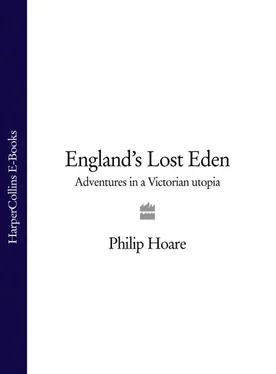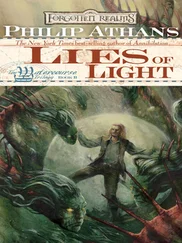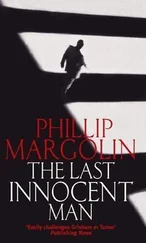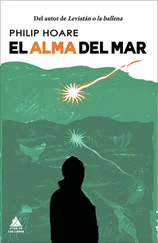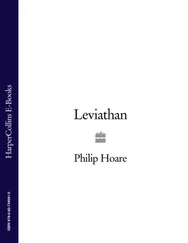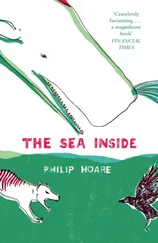‘Where’s Osborne?’ went up another shout.
‘Are you going to mesmerise us?’
‘Sit down!’
‘Go home!’
‘Look out, Osborne! no harm sleeping with a saint.’
The hall-keeper tried to eject some of the troublemakers, but his efforts only resulted in an increase in the riot, ‘and the noise and disturbance that ensued were indescribable. A stone was thrown through one of the back windows and nearly hit a person on the head.’
At this point it was decided that it would be better to call off the entire service. The gas was turned out, and in the darkness Mary Ann made her escape through a rear exit, running across the fields towards Bredfield. In the meantime the police finally arrived, in the shape of Superintendent Fitzgerald and three or four officers. They cleared out the remaining roughs, who then went to the nearby Sun Inn where they thought the Girlingites had sought refuge, and where they ‘saluted Mr Banyard with a handful of slush, which they threw into his face, and the doors were kept shut two hours’. Mr Phillips, the local magistrate, was sent for, and the Reporter concluded that ‘Such a disgraceful riot has not occurred in Woodbridge for a very long time. We are informed that proceedings will be taken against some of the parties concerned in it.’
It seemed Suffolk had joined battle with Mary Ann’s blasphemy; but what appeared to be a popular uprising was more likely organised by disgruntled squires determined to rid the county of such unsettling influences. While Phillips blamed Mrs Girling for the uproar and called for police intervention, Superintendent Fitzgerald said that as he understood the meeting ‘was for religious controversy, he did not think he had any right to interfere nor to send any of his men so long as personal violence was not resorted to, nor any injury to property done’. Girlingism was to become the focus for contemporary concerns about religious freedom, pursued with a ferocity which was a legacy of the English Revolution. In the Reporter , ‘A Lover of Fair Play’ bemoaned ‘a lot of blackguards being encouraged to injure our property and howl down free discussion’, and thought it ‘very unseemly, to say the least [that] a Magistrate could … advance the money to pay the fine of one of those worthies to prevent him from going to prison. I can only hope he is in the habit of showing the same sympathy when a poor wretch is about to be sent to gaol for killing a partridge or a hare … Mrs Girling and her friends will not be silenced by mud and riot and brawling’; rational debate was the only way to ‘expose her folly and delusions’. And while a ‘Lover of Civil and Religious Liberty’ asked, ‘Will you tell me which is the worst of the two – heathenism in Madagascar, or heathenism in (so-called) Christian England?’, another ‘Layman’ declared that Mary Ann had been ‘misrepresented and ought to be heard’.
As she was. On 1 June at Dallinghoo, Mary Ann preached at Mr Cooper’s cottage: the congregation numbered twenty, five of whom were police constables, and two females fainted during the service. Landowners complained that the police ‘would have been better employed in their own parishes looking to the public-houses … rather than being in a labourer’s cottage with this fanatic, who, with her disciples, declares she can never die, and, therefore, requires not mortal protection’. The Reporter meanwhile ‘deplored that such opinions as Mrs Girling enunciates should “delude” even a Suffolk labourer; but orthodoxy is not the test of citizenship, and her success in these parts shows that they must be included amongst the dark regions of the earth’. The imperial sway represented justice, whether in the remoteness of Madagascar, or in East Anglia.
Just when the readers thought they’d heard the last of the Children of God, came the headline:
MRS. GIRLING AGAIN!
William Brooks, a labourer, and William Leggatt, a cobbler, both from Charsfield, were charged with having assaulted John Cooper of Dallinghoo, a gardener. Around 9.30 pm on a summer evening, in the meadow next to his cottage, Cooper confronted some men throwing stones and rotten eggs at his door, and then proceeded to throw them at him.
Leggatt, standing behind a tree, hit the gardener over the head with a stick, and when Cooper said, ‘I know who you are’, Brooks struck out with a bigger stick, shouting, ‘You old b—, I’ll split your head.’ ‘My head was tender several days from the blow,’ said Cooper. He said he couldn’t understand why the gang were there, but his testimony showed precisely the reason: Mary Ann had been conducting services at his cottage for the past two months.
His evidence was a further insight into the sect’s practices:
‘We only sing, pray, and read the Bible,’ Cooper told the court. ‘It lasts one and a half hours, we sometimes stay as late as eleven, we have been as late as three or four o’clock in the morning at other places. I call myself a child of God; I belong to Christ. Mrs Girling has no particular name for the sect. We greet each other with a kiss. Mrs Girling kisses them all; she did on that occasion. My wife was present; she was kissed. I kissed Mrs Girling, and the men as well; that is our general salutation – kissing each other.’
This was decidedly unEnglish behaviour – men kissing men and persons to whom they were unrelated. Cross-questioned, Cooper painted an even stranger picture.
‘We never had any seized with hysteria or fits, or carried out at mine. Some persons do see visions and are overcome by the Word of God, but that is not hysterics. I never saw any person in hysterics. When they are taken up we let them remain the Lord’s time; we set them up; we use no hartsthorn …; we give them no brandy and water; we never tried what effect a pail of cold water would have by throwing it on them.’
Hartsthorn was a solution of ammonia, used as smelling salts, and originally made from the shavings of antlers. Cooper’s description evoked pagan rites and folk magic, as well as scenes of possession unseen in Suffolk for two centuries, and the magistrates decided it was time to put a stop to this nonsense: ‘If these services were met with silent public contempt and disgust they would drop, but while they were opposed in the manner they have been, the leaders of them would endeavour to claim sympathy as being the subjects of religious persecution.’ Leggatt and Brooks were each fined 1s and 12s 8d costs.
But a curious sidelight is revealed by the census: Leggatt was the nineteen-year-old stepson of a David Spall. Not only was he related to the Spalls, who had converted to Girlingism, but in the same village, Charsfield, his forty-six-year-old uncle, also a shoemaker, was a minister at the Baptist chapel. Meanwhile, Henry Osborne would marry Eliza Barham, his second wife, whose kinsman had harried Leonard Benham. This was a close-knit, internecine society whose families had been divided by faith, and it is not hard to see, in this light, why the reaction was so extreme in rural Suffolk: Girlingism pitted brother against brother, sister against sister, and Mary Ann had exhausted the temper of the county. She would claim that a new vision prompted her departure, but the threat of violence was a forceful factor, while an invitation from an elder of the Bible Christians, who had asked her to preach in London, provided a good excuse to leave. Or perhaps, as the sea ate away at the Suffolk coast, she too was in retreat from its depredations, seeking a new life and a new communion in the ever-growing metropolis. Whatever her reasons, that summer of 1871 – which would prove to be a heady season for Victorian utopians – Mary Ann, her flaxen-haired chorister Eliza and her pugilistic cobbler Harry, left Suffolk to take on the capital itself.
Читать дальше
